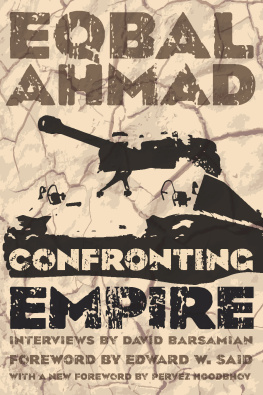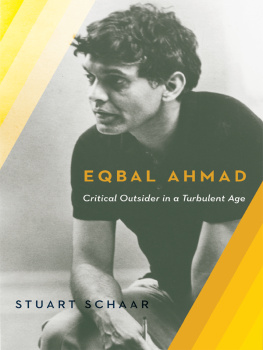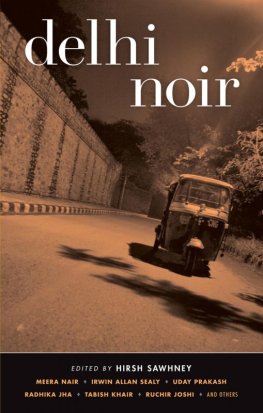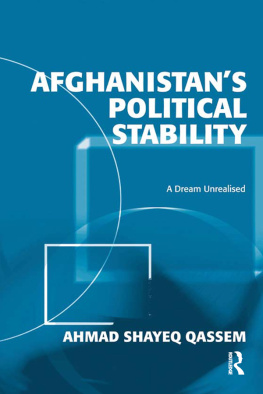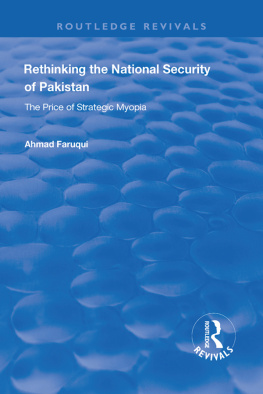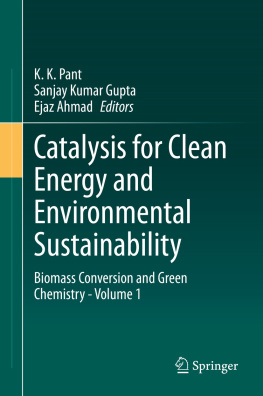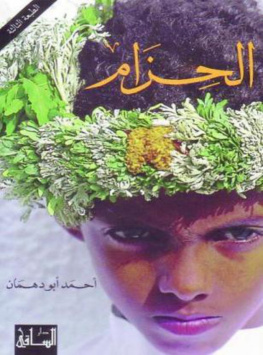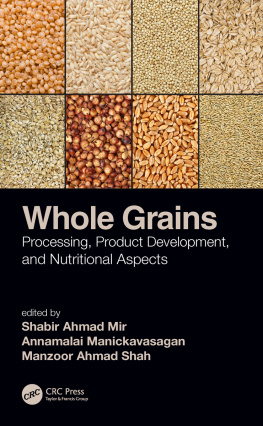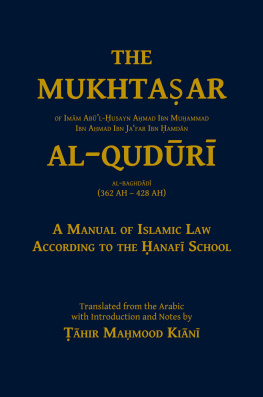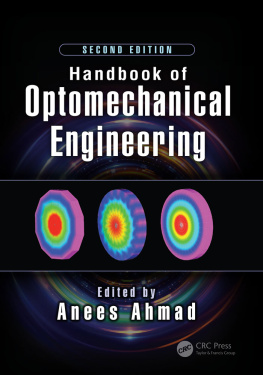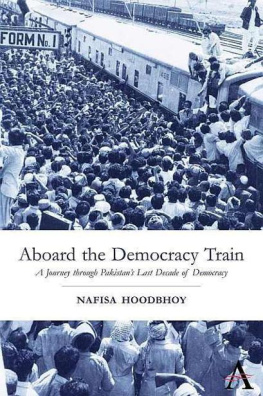Praise for the First Edition
[Eqbal Ahmad] was a shining example of what a true internationalist should be.... Eqbal was at home in the history of all the worlds great civilizations. He had an encyclopedic knowledge of states past and present, and he knew that states had a rightful role to play. But he also knew that states existed to serve peoplenot the other way aroundand he had little to do with governments, except as a thorn in their side. To friends, colleagues, and students, however, he gave unstintingly of himself and his time.... His example and his memory will inspire many to carry on his work.
Kofi Annan, secretary-general of the United Nations
A very dedicated and honorable activist, Eqbal was right in the middle of everything.... He was a student of revolution and imperialism and a very good one.
Noam Chomsky, MIT
Fighting words, wise words, from one of the most powerful activist intellectuals of our time.
Gayatri Chakravorty Spivak, Columbia University
For the thousands of people who have missed Eqbal Ahmad in the year since he died, this book comes like rain during a drought. In these interviews, we hear Ahmads compelling voice again, musing over the Indian subcontinent, Algeria, the United States, and Palestine; recounting his encounters with Mahatma Gandhi and Yasir Arafat; fulminating against the Wests pusillanimity over Bosnia and Kosovo; laying out his solution to the Kashmir conflict; and discussing his plans to found a university in Pakistan named after the Arab historian and sociologist Ibn Khaldun. Such is the range and breadth of David Barsamians interviews, my only regret is that the book is not twice its length.
Radha Kumar, Council on Foreign Relations
Eqbal was a teacher, a poet-analyst, a mentor to far more of us than he knew.
Phyllis Bennis, Insitute for Policy Studies
These interviews provide a wonderfully focused, yet wide-ranging compendium of Eqbal Ahmads worldview.... Ahmad was a courageous thinker and activist, an inspirational presence wherever progressives gathered, and a remarkable human being filled with love, humor, and generosity of spirit.
Richard Falk, Princeton University
Hearing Eqbal Ahmads voice again, in these eloquent pages, renews ones sense of loss. The people of Bosnia and Kosovo, in particular, have been deprived of an ally when they need one most. But perhaps the voice can still unblock a mind or two, in this dull era of the parochial Left.
Christopher Hitchens, The Nation
With the voice of truth and compassion, Eqbal Ahmad weaves a tapestry of resistancefrom Pakistan to Palestine, and Indonesia to Iraq. Ever challenging fanaticism and bigotry, particularly the scapegoating of Muslims and the demonization of Islam, Ahmad speaks for a vision of secular internationalism. Confronting Empire is a must-read for anyone concerned with issues of multiculturalism, liberty, and social justice.
Zaineb Istrabadi, Columbia University
We have here the ideal combination for a dazzling intellectual encounter: thoughtful questions by a superb interviewer, David Barsamianand brilliant responses by the extraordinary Eqbal Ahmad, recorded just before Ahmads death.
Howard Zinn, Boston University
Eqbal Ahmad was a multitude of menscholar, activist, political analyst, teacher, diplomat, visionarybut, above all, a foot-soldier in the army of peoples everywhere.
Race and Class
ACKNOWLEDGMENTS
My gratitude goes to Edward W. Said for his foreword; Agha Shahid Ali for his translation of Faiz Ahmed Faizs Dawn of Freedom; S. Farooq Ali for his Urdu calligraphy; to Julie Diamond, Urban Hamid, and Rebecca Kandel for photographs; Zoltan Grossman of the Wisconsin Cartographers Guild for the map; and Zaineb Istrabadi, Zubeida Mustafa, and Emran Qureshi for their help with several of the references. Thanks to Eqbal Ahmads many students, friends, and colleagues at Hampshire and elsewhere for their assistance and advice. Sandy Adler is the goddess of transcribers. Sonia Shah and Anthony Arnove at South End Press were a joy to work with in the editing process.
Interview excerpts appeared in The Progressive , Madison, Wisconsin, November 1998, and in Himal , Katmandu, Nepal, March 1999.
The interview for chapter 1 took place at Hampshire College in Amherst, Massachusetts, on December 1415, 1996; the interview for chapter 2 took place at Hampshire College on August 24, 1998; and the interview for chapter 3 took place in Boulder, Colorado, on October 1213, 1998.
EQBAL AHMAD
A BIOGRAPHICAL SKETCH
E qbal Ahmad was born in the village of Irki in Bihar, India, in 1933 or 1934. A few years later, his father was murdered over a land dispute, while the young Eqbal lay beside him. During the Partition of India in 1947, he and his elder brothers migrated to Pakistan.
Ahmad graduated from Foreman Christian College in Lahore, Pakistan, in 1951 with a degree in economics. After serving briefly as an army officer, he enrolled at Occidental College in California as a Rotary Fellow in American history in 1957. From 1958 to 1960, he studied political science and Middle Eastern history at Princeton, later earning his Ph.D.
From 1960 to 1963, Ahmad lived in North Africa, working primarily in Algeria, where he joined the National Liberation Front and worked with Frantz Fanon. He was a member of the Algerian delegation to peace talks at Evian.
When he returned to the United States, Ahmad taught at the University of Illinois at Chicago (19641965) and Cornell University in the School of Labor Relations (19651968). During these years, he became known as one of the earliest and most vocal opponents of American policies in Vietnam and Cambodia. In 1969, he married the teacher and writer Julie Diamond. From 1968 to 1972, he was a fellow at the Adlai Stevenson Institute in Chicago.
In 1971, Ahmad was indicted with the anti-war Catholic priests, Daniel and Philip Berrigan, along with four other Catholic pacifists, on charges of conspiracy to kidnap Henry Kissinger. After fifty-nine hours of deliberations, the jury declared a mistrial.
From 1972 to 1982, Ahmad was Senior Fellow at the Institute for Policy Studies. From 1973 to 1975, he served as the first director of its overseas affiliate, the Transnational Institute in Amsterdam.
In 1982, Ahmad joined the faculty at Hampshire College in Amherst, Massachusetts, where he taught world politics and political science.
In the early 1990s, he was granted a parcel of land in Pakistan by Prime Minister Benazir Bhuttos government to build an independent, alternative university, named Khaldunia. The land was later seized by Bhuttos husband, Asif Zardari, reportedly to build a golf course and club.
A prolific writer and activist, Ahmad was widely consulted by revolutionaries, journalists, activist leaders, and policymakers around the world. He was an editor of the journal Race and Class , contributing editor of Middle East Report and LEconomiste du Tiers Monde , co-founder of Pakistan Forum , and an editorial board member of Arab Studies Quarterly . Ahmad was that rare thing, an intellectual unintimidated by power or authority, a companion in arms to such diverse figures as Noam Chomsky, Howard Zinn, Ibrahim Abu-Lughod, Richard Falk, Fred Jameson, Alexander Cockburn, and Daniel Berrigan.
Upon his retirement from Hampshire in 1997, he settled permanently in Pakistan, where he continued to write a weekly column for Dawn , Pakistans oldest English-language newspaper. Eqbal Ahmad died in Islamabad on May 11, 1999, of heart failure following surgery for colon cancer, diagnosed just one week before.
NOTES
Edward W. Said, He Brought Wisdom and Integrity to the Cause of Oppressed People, Guardian , May 14, 1999, p. 22.
Michael T. Kaufman, Eqbal Ahmad: Scholar and Antiwar Activist, Dies at 67, New York Times , May 13, 1999, p. C22.
Next page
